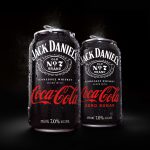
Blake’s Beverage Co. Takes Aim at Fourth Category Innovation Following Merger of Blake’s, Avid and Austin Eastciders
Blake’s Beverage Co. is looking to be a leader in not just hard cider, but all “fruit-forward fourth category innovation,” founder and CEO Andrew Blake told Brewbound.













